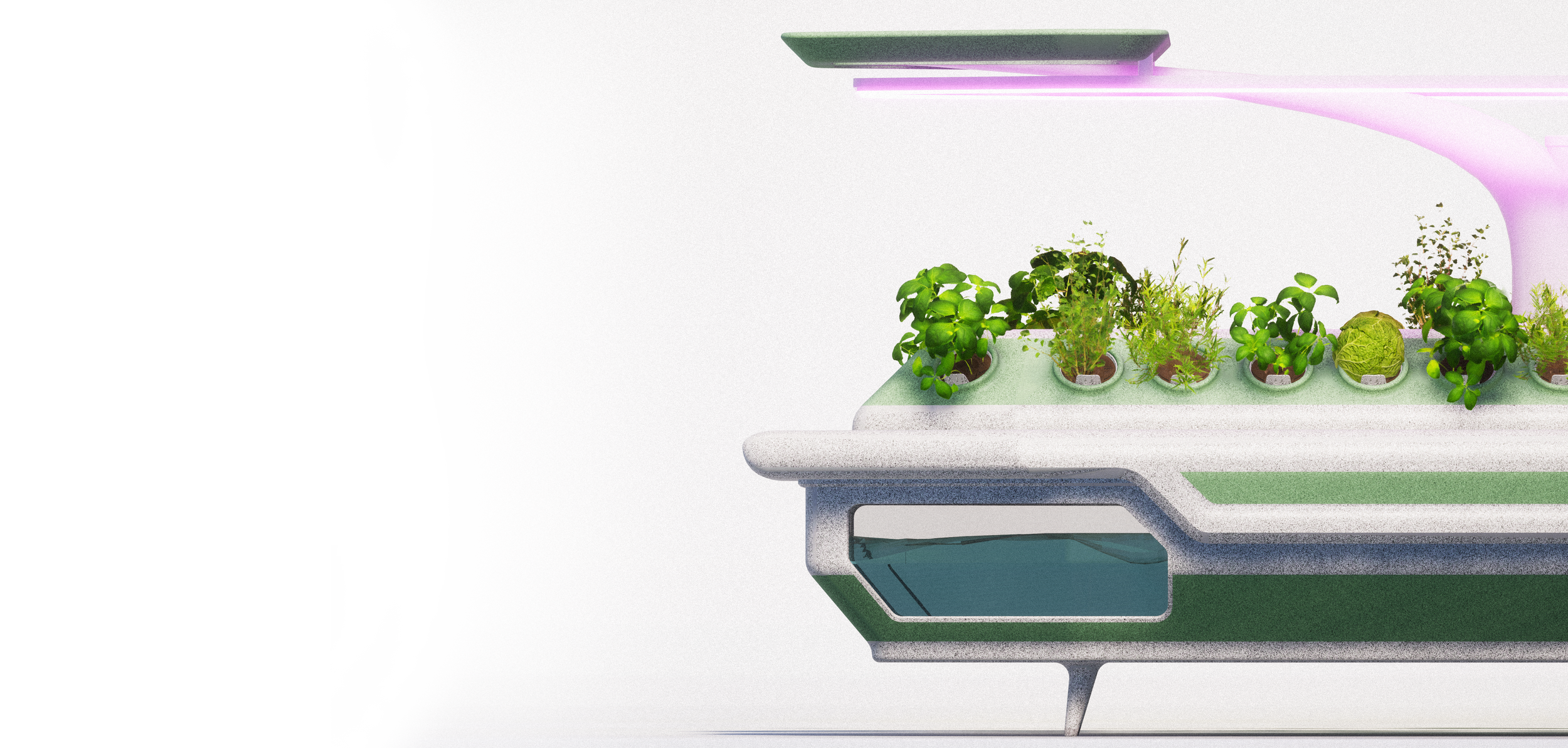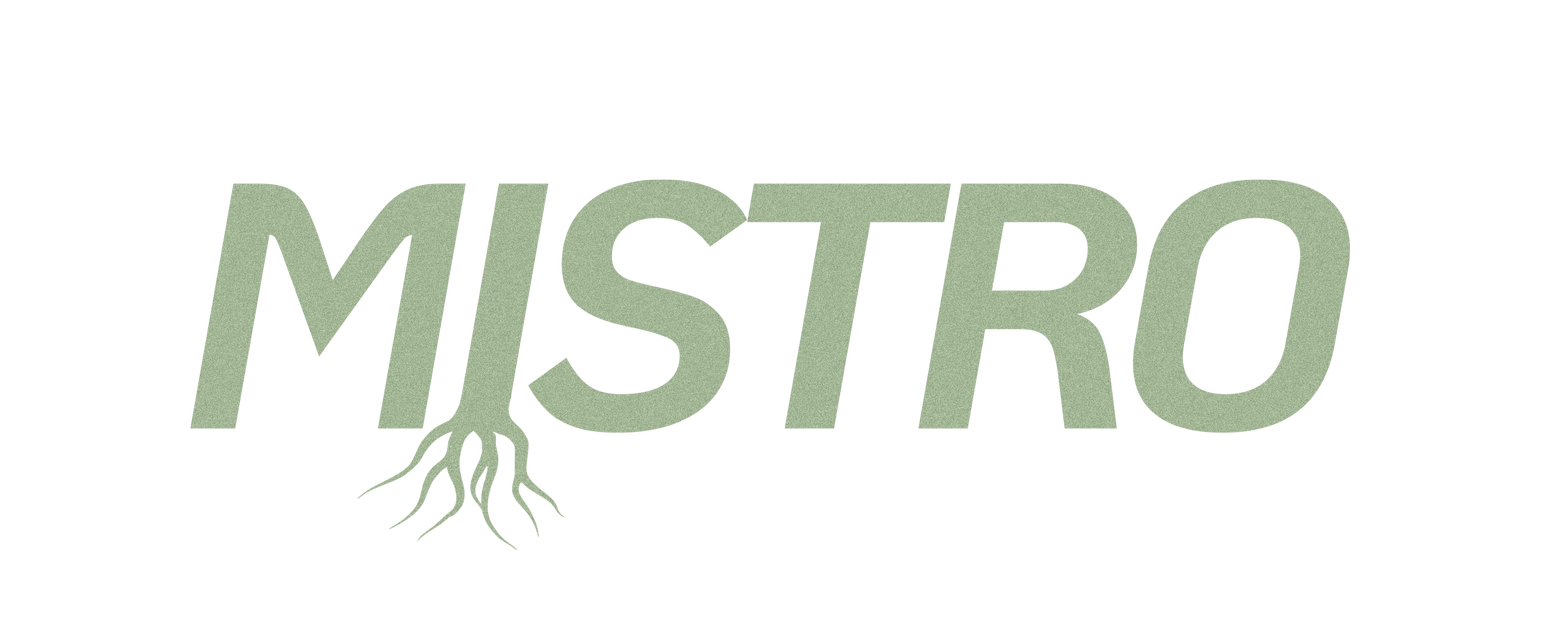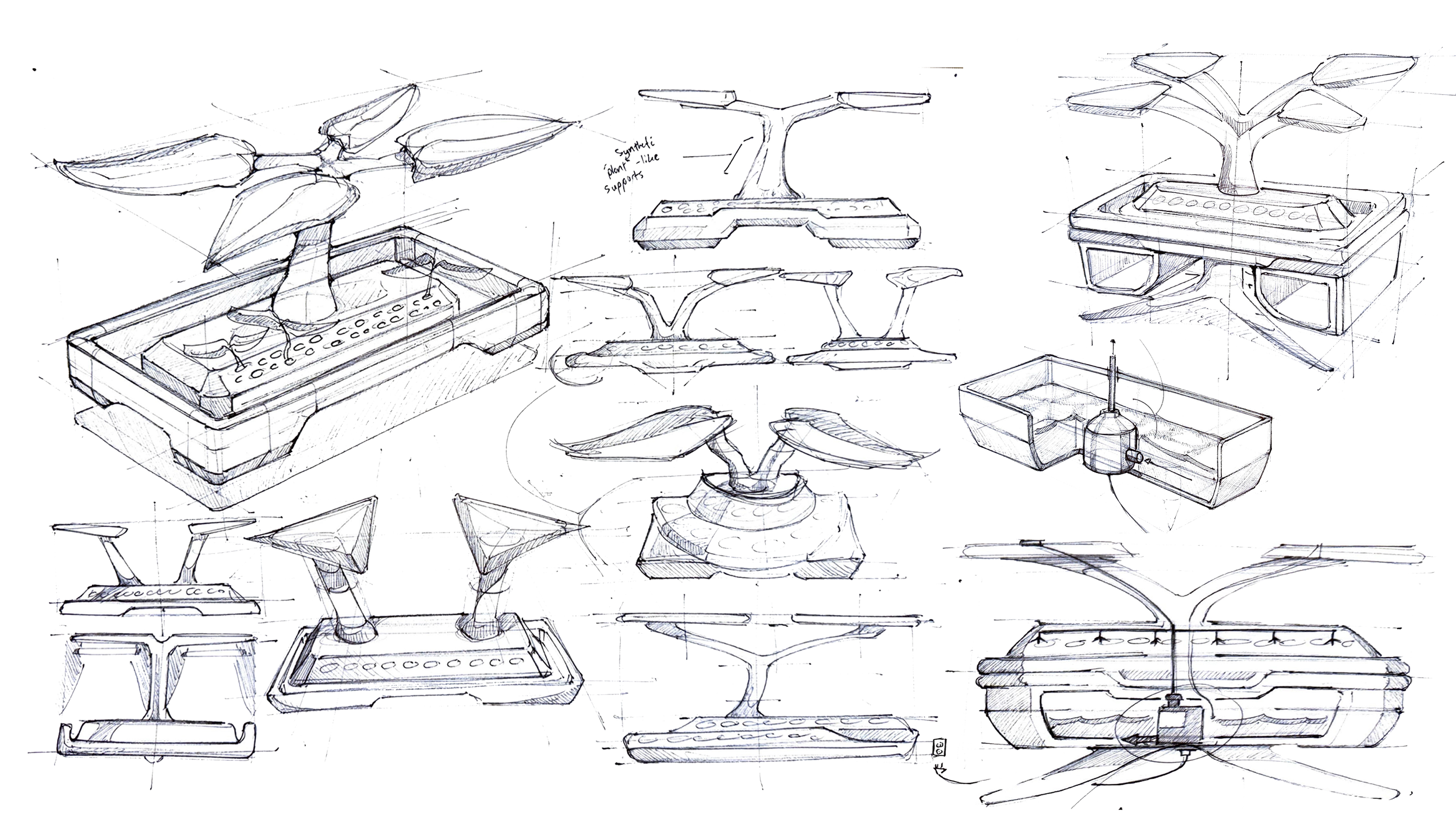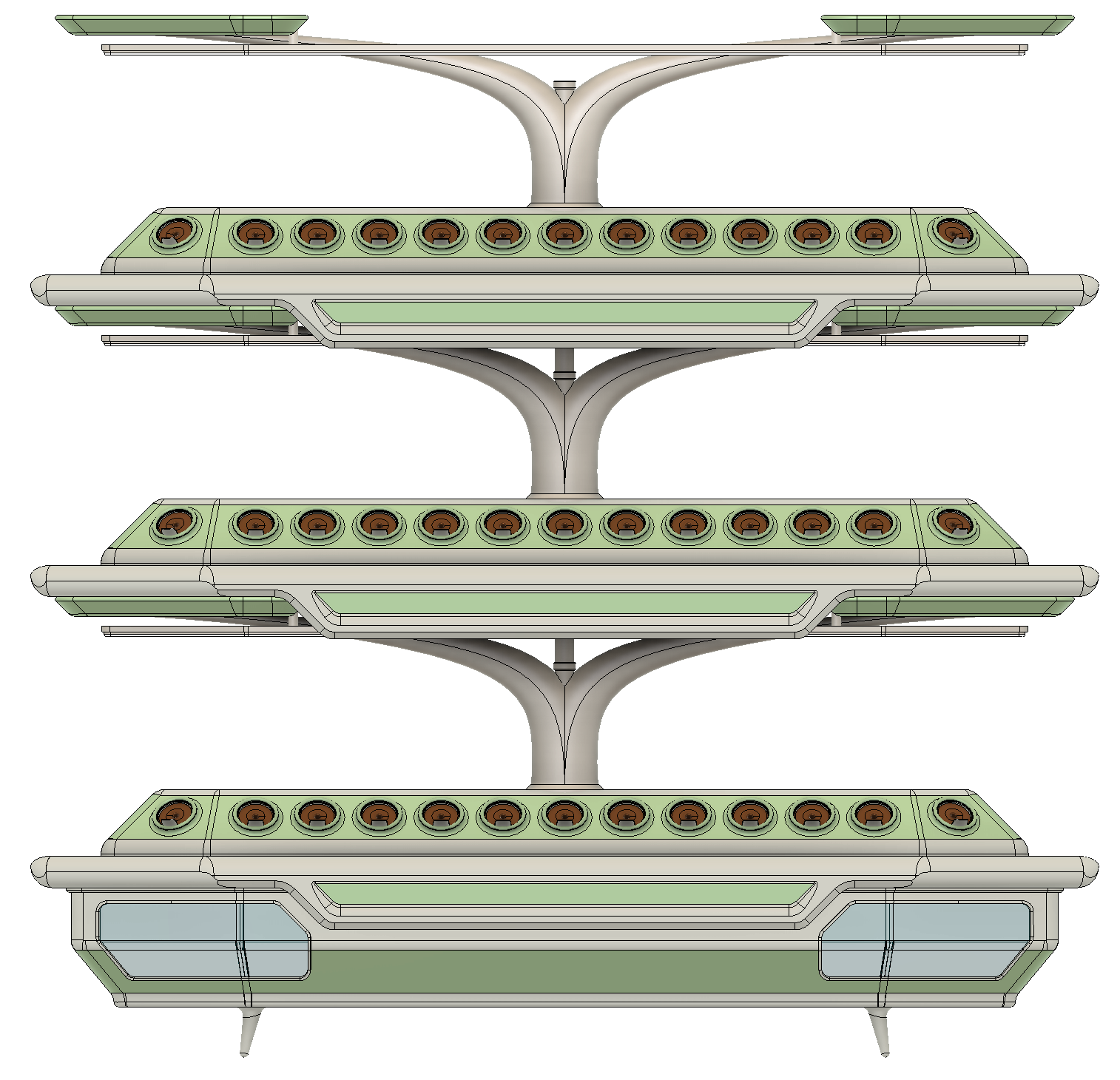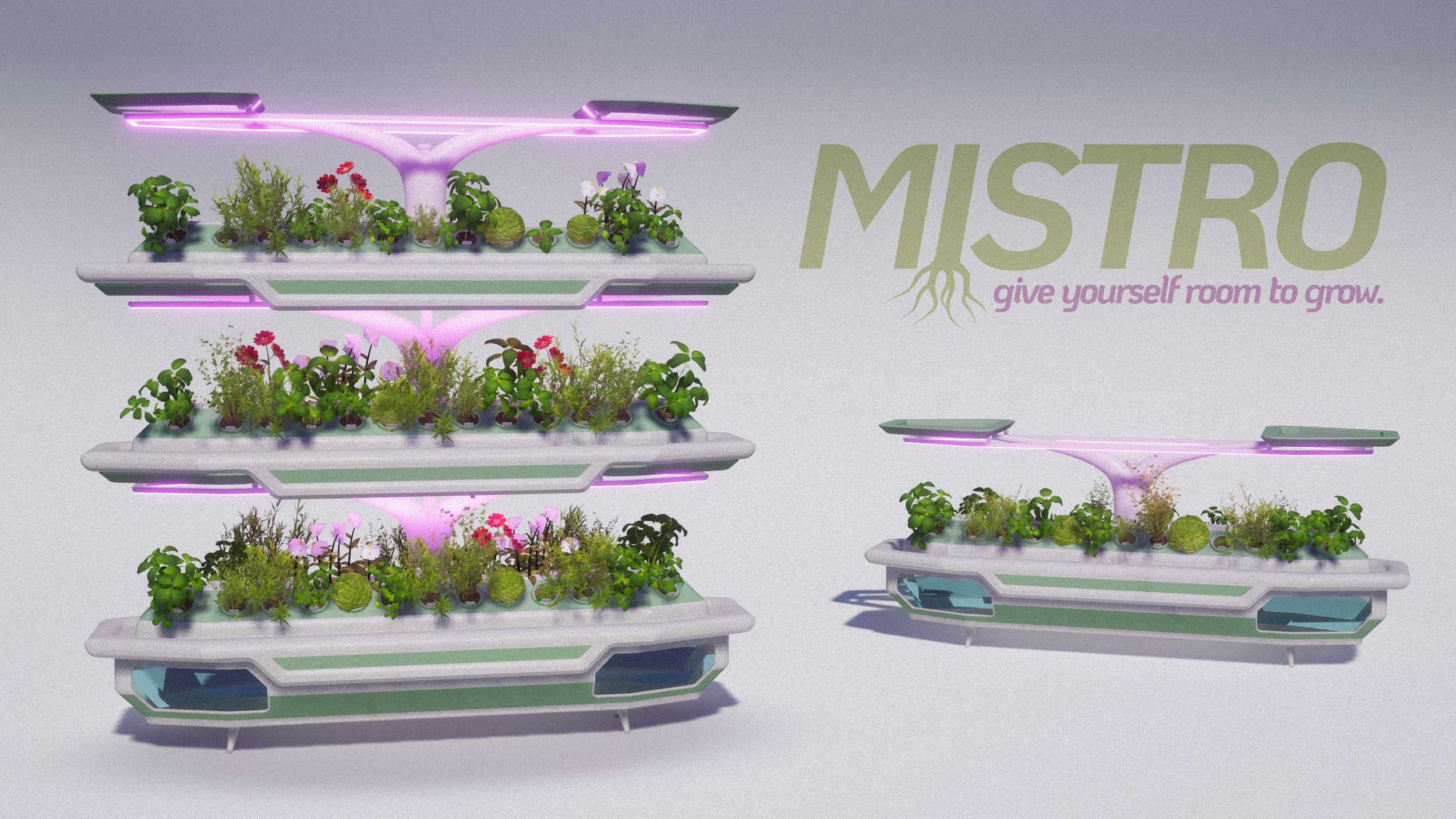Aeroponic Garden
A home gardening system for apartment-going gardeners, allowing for a sustainable, affordable option to fulfill gardening dreams.

Hydroponics:
Hydroponics use constant running water
Use more space, still less than garden
A little cheaper than aeroponics
More automated, water is constant
Use solid root system (peat, soil, clay)
Overall slower growth rate
Aeroponics:
Aeroponics spray vitamin infused mix
Aeroponics slightly more efficient, may be harder to manage, costly,
98% less water than traditional farming
60% less than hydroponic applications
Faster plant growth, exposed to oxygen
WHY AEROPONICS?
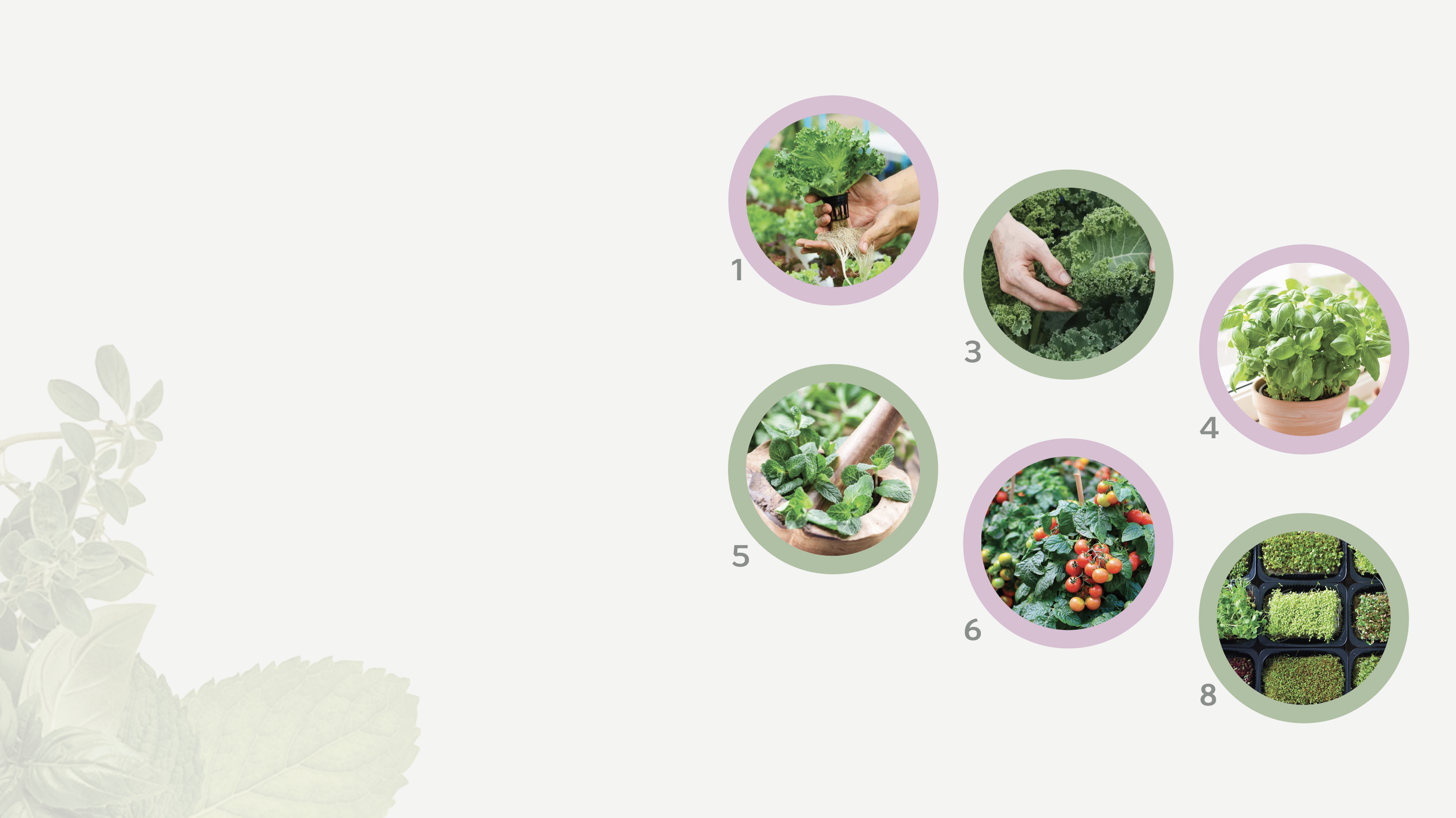
WHAT CAN BE GROWN?
A large variety, but depends on your space availability.
Most ideal, space efficient:
Leafy greens (lettuce)
Spinach
Kale
Basil
Mint
Cherry tomatoes
Strawberries
Micro greens
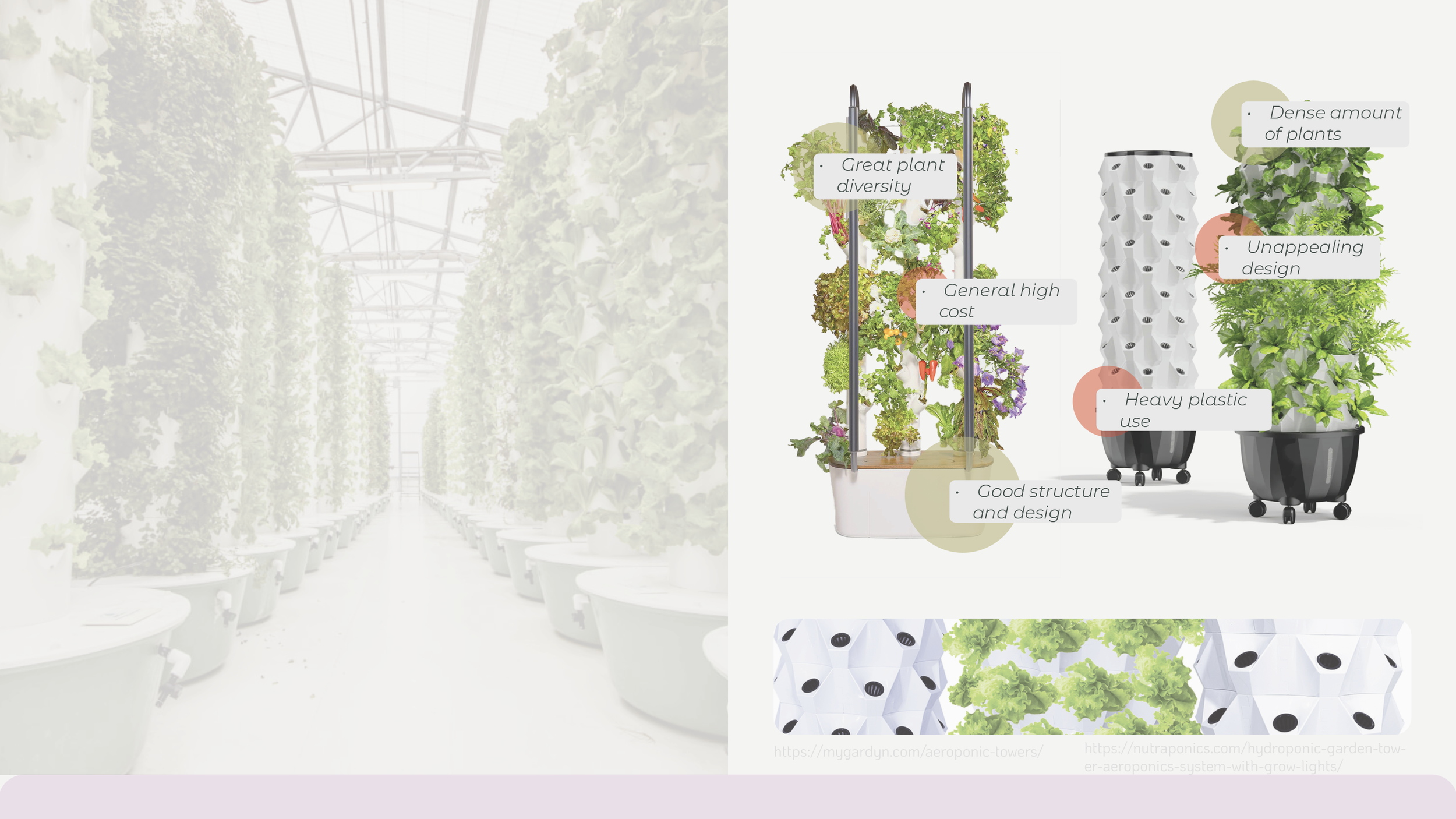
Product Challenges
Current products are heavy in use of plastic
Currently cost between $600-$1000 for beginners
Are great in efficiency of space, not very modular, fairly fixed design
How to Improve
Want to mimic shape, design, how they house many plants in a small area
Make something more sustainable
Should be affordable for beginners
BENCHMARKING
SKETCHING
Design started more boxy, modular, exterior posts, no main basin design yet. Moved in a direction of less material, in turn would be more sustainable with less material. Wanted to go with more natural shape, less utilitarian, follow something with more flow. Ended up with plantlike design, branch supports, leafy structures, user friendly
Finalized, focusing more on central supports, plant like shape, simplified basin, rounded corners
3D MODELING
Final Design
Similar to sketches, CAD followed along starting with boxy, material heavy design. Strayed away from this, moved to central supports for less material. Less bulky basin and legs, moved to more sophisticated, home friendly design. Finalized with structured, organic, low material design
BRANDING
Color pallet is decided, variations of colors are picked for legibility. Different portmanteaus are formed from “water”-like and “plant”-like words. Favorite color and word are picked, details are added
First renders are studied in Adobe Color to pick out color pallet. Images then picked from Pinterest, compiled in Adobe Photoshop, help influence final renders. Green and pink influenced from plants, pink LED used in gardens
FINAL RENDERS
Final renders are created by taking inspiration from real life plants that would be normally used in an aeroponic garden. Cut sections are shown to reveal mechanics inside the garden, including the water pump system and the planting cups placements.


